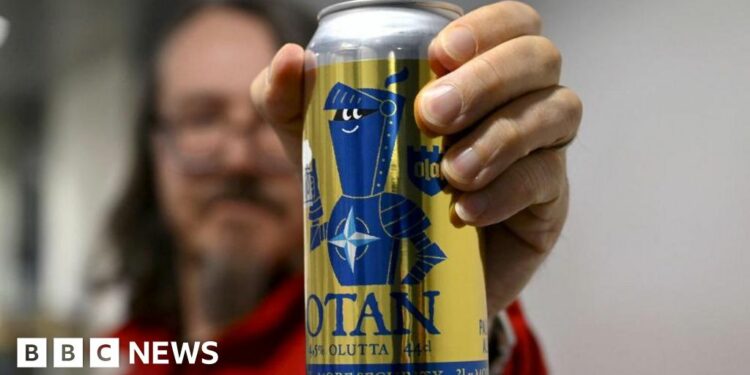Image source, Getty Images
Image caption, Finnish beer currently has to be below 5.5% alcohol to be sold in supermarketsArticle informationAuthor, Danny AeberhardRole, BBC World Service Europe editor
5 June 2024
Sweden and Finland have moved to relax strict laws that govern the sale of alcohol, while preserving wider state monopolies.
The government in Stockholm intends to allow what it calls “farm sales”, in which alcohol producers offer beverages directly to visiting customers.
Meanwhile, Finland’s parliament has approved the sale of fermented drinks such as beer, wine and cider with an alcohol content of up to 8% in supermarkets, up from the current 5.5% limit.
In Sweden and Finland, alcohol can generally only be bought in state-owned shops, or at licensed bars and restaurants.
They are the only EU countries to have alcohol monopolies. The long-standing practice is part of a wider Nordic tradition, and aims to limit consumption in the interests of public health.
Finland’s MPs voted by 102 to 80 in favour of its fermented drinks law, with all members from one party in the governing coalition, the Christian Democrats, voting against.
Those opposing the legislation justified their position on health grounds, amid fears of a rise in alcohol consumption.
The stronger beers, wines and ciders will be available in shops as early as next week. However, the new law does not cover distilled drinks.
Meanwhile Sweden’s centre-right government is planning to help entrepreneurs by opening small-scale sales of wine, beer, cider and spirits to those visiting the producers’ premises.
Ministers say it’ll help create “great memories”.
The measure, if approved, is expected to come into force in 2025.
Both decisions may need referring to the European Commission, to check they would not breach competition law.
The Commission has already voiced objections to Finland’s decision to exclude distilled beverages from its new law.
Source link : https://www.bbc.com/news/articles/cjmmzr8n1dxo.amp
Author :
Publish date : 2024-06-05 16:40:45
Copyright for syndicated content belongs to the linked Source.


